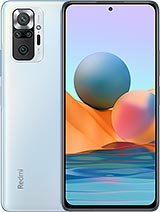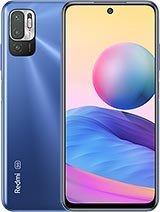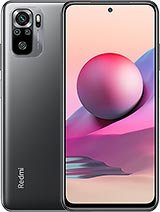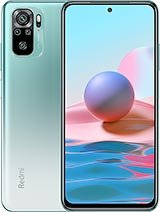- Specifications
- Compare
- Xiaomi Redmi Note 7 Pro vs Xiaomi Redmi K20 Pro
Xiaomi Redmi Note 7 Pro vs Xiaomi Redmi K20 Pro
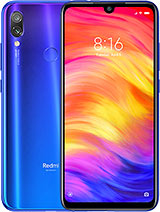
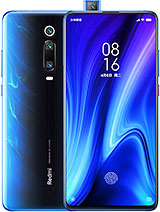
| |
| Price | $ 21,999 $ 49,999 |
| Our Rating | |
| Brand | Xiaomi Xiaomi |
| Category | Smartphone Smartphone |
General
| Device Type | Smartphone Smartphone |
| Model Name | Redmi Note 7 Pro M1903F11 |
| Price | 21999 BDT BDT 49,999 |
Launch
| Announced | 01 February, 2019 15 May, 2019 |
| Released | 01 May, 2019 28 June, 2019 |
| Status | Available Available |
Network
| Technology | GSM / HSPA / LTE GSM / HSPA / LTE |
| 2G Network | GSM 850 / 900 / 1800 / 1900 - SIM 1 & SIM 2 GSM 850 / 900 / 1800 / 1900 - SIM 1 & SIM 2 |
| 3G Network | HSDPA 850 / 900 / 1900 / 2100 HSDPA 850 / 900 / 1900 / 2100 |
| 4G Network | LTE band 1(2100), 3(1800), 5(850), 7(2600), 8(900), 40(2300), 41(2500) LTE band 1(2100), 3(1800), 5(850), 7(2600), 8(900), 34(2000), 38(2600), 39(1900), 40(2300), 41(2500) |
| Speed | HSPA 42.2/5.76 Mbps, LTE-A (3CA) Cat9 450/50 Mbps HSPA 42.2/5.76 Mbps, LTE-A |
Body
| Type Design Type called form factor refers to a mobile phone's size, shape, and style as well as the layout and position of major components of phone. There are three major form factors seen in mobile phones => bar phones, folding phones and sliding phones. | Full-Screen Full-Screen |
| Dimensions | 159.2 x 75.2 x 8.1 mm (6.27 x 2.96 x 0.32 in) 156.7 x 74.3 x 8.8 mm (6.17 x 2.93 x 0.35 in) |
| Weight | 186 grams 191 g (6.74 oz) |
| Build | Glass front (Gorilla Glass 5), glass back (Gorilla Glass 5), plastic frame Glass front (Gorilla Glass 5), glass back (Gorilla Glass 5), aluminum frame |
| Available Colors | Nebula Red, Neptune Blue, Space Black Carbon black, Flame red, Glacier blue, Summer Honey, Pearl White |
| SIM SIM (Subscriber Identity Module) is a small card that contains mobile network subscriber's account information. This allows the phone using the card to attach to a mobile network. The SIM card is most commonly associated with GSM and UMTS mobile networks. Moving a SIM card from one phone to another allows a subscriber to switch mobile phones without having to contact their mobile network carrier. SIM cards can also be used by a phone to store limited amounts of data, such as phone numbers and text messages. | Hybrid Dual SIM (Nano-SIM, dual stand-by) Dual SIM (Nano-SIM, dual stand-by) |
Display
| Display Type Display Technology => A number of display technologies and types used in mobile phones => TFT (Thin Film Transistor), IPS (In-Place Switching), OLED (Organic Light Emitting Diode), AMOLED (Active-Matrix Organic Light-Emitting Diode), Super AMOLED (an even advanced version of AMOLED), Resistive Touchscreen (Resistive touchscreens contain two layer of conductive material with a very small gap between them which acts as a resistance), Capacitive Touchsceen (Capacitive touchscreen technology consists of a layer of glass coated with a transparent conductor) | IPS LCD capacitive touchscreen, 16M colors Super AMOLED capacitive touchscreen, 16M colors |
| Size | 6.3 inches, 97.4 cm2 (~81.4% screen-to-body ratio) 6.39 inches, 100.2 cm2 (~86.1% screen-to-body ratio) |
| Resolution | 1080 x 2340 pixels, 19.5:9 ratio (~409 ppi density) 1080 x 2340 pixels, 19.5:9 ratio (~403 ppi density) |
| Display Protection Display Protection => Gorilla Glass is a special alkali-aluminosilicate glass shield with exceptional damage resistance that helps protect mobile displays from scratches, drops, and bumps of everyday use, It is always better to go for a smartphone with Gorilla Glass for that added protection and peace of mind. |
Corning Gorilla Glass 5
Corning Gorilla Glass 5 DCI-P3 100% HDR10 |
| Multi Touch |
Platform
| OS | Android 9.0 (Pie), upgradable to Android 10.0; MIUI 11 Android 9.0 (Pie); MIUI 11 |
| Chipset Chipset is a group of integrated circuits designed to perform one or a more dedicated functions, often with real time computing constraints, Popular smartphones are equipped with more advanced embedded chipsets that can do many different tasks depending on their programming. | Qualcomm SDM675 Snapdragon 675 (11 nm) Qualcomm SM8150 Snapdragon 855 (7 nm) |
| CPU CPU (Central Processing Unit) mostly known as processors, CPU processes instructions in order to carry out certain functions that make your device operate properly. Processors are often described as the brain of computers, smartphones and tablets, Smartphones and tablets rely on processors to carry out their every task, Processors are an incredibly important factor in selecting any type of computing device, including your smartphone. | Octa-core (2x2.0 GHz Kryo 460 Gold & 6x1.7 GHz Kryo 460 Silver) Octa-core (1x2.84 GHz Kryo 485 & 3x2.42 GHz Kryo 485 & 4x1.78 GHz Kryo 485) |
| GPU GPU (Graphics Processing Unit) is a single-chip processor designed to rapidly manipulate and alter memory to accelerate the creation of images in a frame buffer intended for output to a display, This includes things such as lighting effects, object transformations, and 3D motion. | Adreno 612 Adreno 640 |
Memory
| Card Slot Memory Card Slot is a special slot for inserting a memory card. Memory cards allow you to expand the phone's built-in memory, A memory card (sometimes called a flash memory card or a storage card) is a small storage medium used to store data such as text, pictures, audio, and video, for use on small, portable or remote computing devices such as mobile phones, mp3 players, digital cameras. | microSDXC (uses shared SIM slot) No |
| Internal Storage Internal Storage is a data storage space (flash memory) mostly used in smartphones, tablets and other electronic devices where operating system, apps, music, photos, videos, files and other user data Is stored. | 32GB / 64GB / 128GB 64GB, 128GB, 256GB |
| RAM | 3GB / 4GB / 6GB 6GB / 8GB |
Camera
| Main Camera Camera is able to capture photographs and usually videos, The most important characteristics of a camera are the resolution (measured in megapixels), lens focus type (fixed or automatic), higher megapixel cameras are known to capture higher quality photos, but not always a good measurement of the photos quality. |
48 MP, f/1.8, (wide), 1/2.0", 0.8µm, PDAF 5 MP, f/2.4, (depth) 48 MP, f/1.8, 26mm (wide), 1/2.0", 0.8µm, PDAF, Laser AF 8 MP, f/2.4, 53mm (telephoto), 1/4.0", 1.12µm, PDAF, Laser AF, 2x optical zoom 13 MP, f/2.4, 12mm (ultrawide), 1/3.1", 1.12µm |
| Camera Features | Dual-LED flash, HDR, panorama, White Balance, ISO Control, Geo-tagging, HDR, Digital Zoom, Face Detection, Touch Focus, Auto Focus, Portrait Mode, Depth Sensor, RAW, Scene Mode, EIS Dual-LED flash, HDR, panorama |
| Video | 2160p@30fps, 1080p@30/60/120fps, (gyro-EIS) 2160p@30/60fps, 1080p@30/120/240fps, 1080p@960fps |
| Secondary Camera | 13 MP, f/2.2, 1.25µm Motorized pop-up 20 MP, f/2.2, (wide), 1/3.4", 0.8µm |
| Secondary Camera Features | HDR HDR |
| Secondary Camera Video | 1080p@30fps 1080p@30fps |
| Flash Flash Light => There is commonly two types of flash lights are used in camera mobile phones, LED Flash (LED flash offers lower power consumption with drive circuitry that takes up very little room, LEDs can be strobed faster than any other light source), Xenon Flash (xenon flash produces an extremely intense full-spectrum white light for a very short duration) | Yes Yes |
Sound
| Alert Types | Vibration, MP3, WAV ringtones Vibration, MP3, WAV ringtones |
| Loudspeaker | |
| 3.5mm jack |
Connectivity
| WLAN WLAN is a popular wireless networking technology using radio waves to provide high-speed network connections that allows devices to communicate without cords or cables, WLAN is increasingly becoming the preferred mode of internet connectivity all over the world. | Wi-Fi 802.11 a/b/g/n/ac, dual-band, Wi-Fi Direct, hotspot Wi-Fi 802.11 a/b/g/n/ac, dual-band, Wi-Fi Direct, hotspot |
| Bluetooth Bluetooth is a wireless communications technology for exchanging data between mobile phones, headsets, computers and other network devices over short distances without wires, Bluetooth technology was primarily designed to support simple wireless networking of personal consumer devices. | 5.0, A2DP, LE 5.0, A2DP, LE, aptX HD |
| GPS GPS The Global Positioning System is a satellite-based radio navigation system, GPS permits users to determine their position, velocity and the time 24 hours a day, in all weather, anywhere in the world, In order to locate your position, your device or GPS receiver must have a clear view of the sky. | Yes, with A-GPS, GLONASS, BDS Yes, with dual-band A-GPS, GLONASS, BDS, GALILEO |
| NFC NFC (Near field communication) is a set of standards for smartphones and similar devices to establish peer-to-peer radio communications with each other by touching them together or bringing them into proximity, usually no more than a few inches. | |
| FM Radio | FM radio, recording FM radio, recording |
| USB | 2.0, Type-C 1.0 reversible connector 2.0, Type-C 1.0 reversible connector, USB On-The-Go |
| Infrared Port Infrared connectivity is an old wireless technology used to connect two electronic devices. It uses a beam of infrared light to transmit information and so requires direct line of sight and operates only at close range. | |
| Wi-fi Hotspot | |
| Wireless Charging Wireless Charging (Inductive Charging) uses an electromagnetic field to transfer energy between two objects. This is usually done with a charging station. Energy is sent through an inductive coupling to an electrical device, which can then use that energy to charge batteries or run the device. |
Features
| Sensors Sensors are electronic components that detects and responds to some type of input from the physical environment. The specific input could be light, heat, motion, moisture, pressure and location, The output is generally a signal that is converted to use in computing systems, a location sensor, such as a GPS receiver is able to detect current location of your electronic device. | Fingerprint (rear-mounted), accelerometer, gyro, proximity, compass Fingerprint (under display, optical), accelerometer, gyro, proximity, compass |
| Messaging | SMS(threaded view), MMS, Email, Push Email, IM SMS(threaded view), MMS, Email, Push Email, IM |
| Web Browser Web Browser => a web browser is a software application used to locate, retrieve and display content on the World Wide Web, including Web pages, images, video and other files, The primary function of a web browser is to render HTML, the code used to design or markup webpages. | HTML5 HTML5 |
| Java Support Java for Mobile Devices is a set of technologies that let developers deliver applications and services to all types of mobile handsets, ranging from price efficient feature-phones to the latest smartphones. Java is currently running on over 3 billion phones worldwide, and growing. It offers unrivaled potential for the distribution and monetization of mobile applications. |
Battery
| Battery Type Battery Type => Cell phones run on various kinds of batteries depending on the manufacturer, phone size or shape and features. There are basically four types of cell phone batteries => Lithium Polymer, Lithium Ion, Nickel Metal Hydride and Nickel Cadmium. | Li-Poly (Lithium Polymer) Li-Poly (Lithium Polymer) |
| Capacity Battery Capacity is a measure (typically in Amp-hr) of the charge stored by the battery, and is determined by the mass of active material contained in the battery. The battery capacity represents the maximum amount of energy that can be extracted from the battery under certain conditions. | 4000 mAh 4000 mAh |
| Placement | Non-removable Non-removable |
| Battery Features |
Fast Charging 9V/2A 18W (Quick Charge 4)
Fast charging 27W Quick Charge 4+ |
| Fast Charging | |
| Standby Standby Time is the total amount of time that you can leave your is fully charged, turned on and ready to send and receive calls or data transmissions before completely discharging the battery. | 45 h 30 min 103h |
| Talk Time Talk Time is the longest time that a single battery charge will last when you are constantly talking on the phone under perfect conditions, Ambient temperature and highly dependent on the cellular network environment such as the distance to the closest cell network tower. | 23 h 27h |
MISC
| Made by | China China |
| Models | M1901F7S M1903F11I |
| SAR | 0.96 W/kg (head) 0.84 W/kg (body) 1.03 W/kg (head) 0.72 W/kg (body) |
TESTS
| performance |
AnTuTu: 180754 (v7), 215308 (v8) GeekBench: 6620 (v4.4), 1624 (v5.1) GFXBench: 7.9fps (ES 3.1 onscreen) AnTuTu: 368846 (v7), 437823 (v8) GeekBench: 10684 (v4.4), 2732 (v5.1) GFXBench: 36fps (ES 3.1 onscreen) |


|


